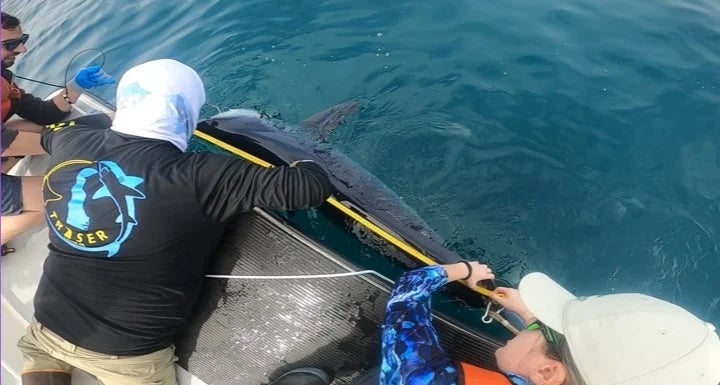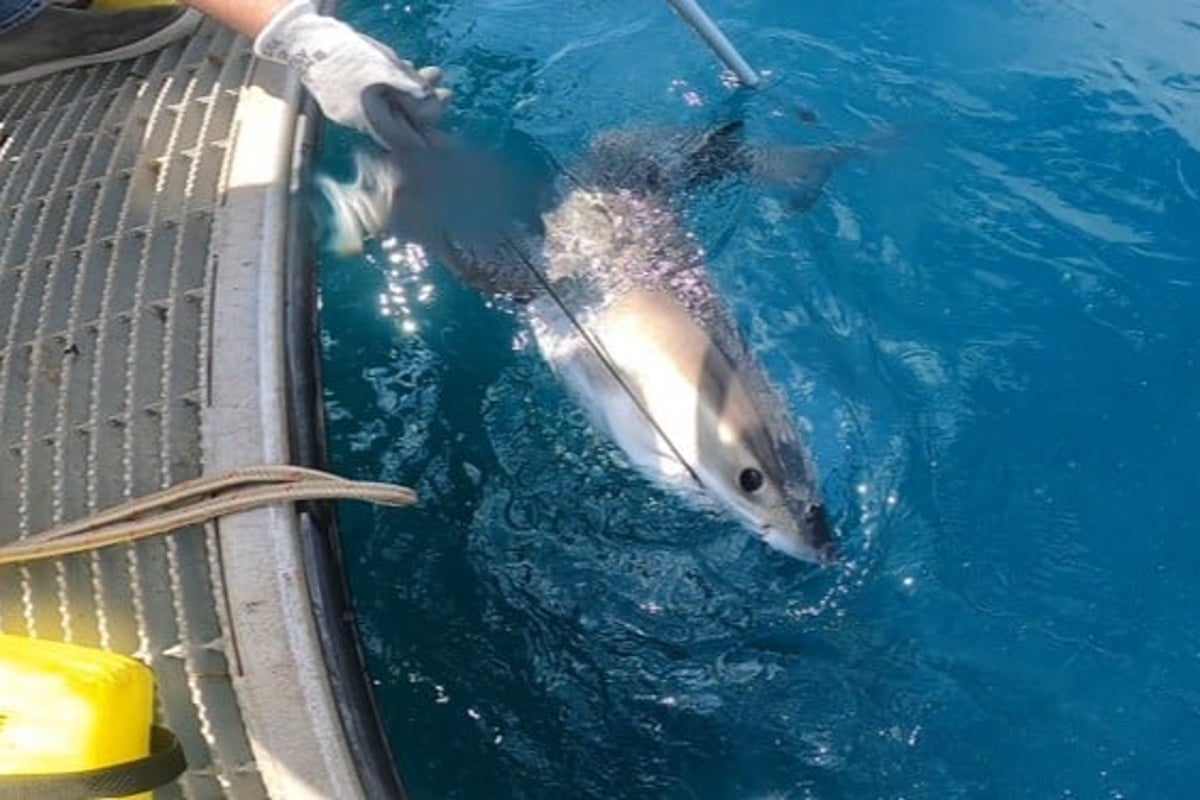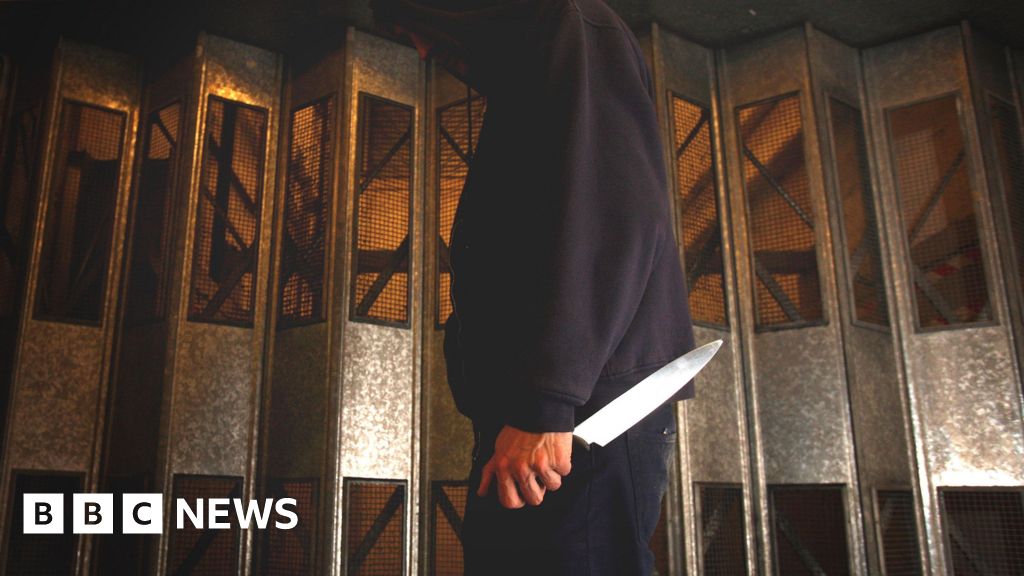Researchers are deploying an unlikely ally in the effort to improve hurricane forecasting.
Three sharks fitted with sensors are swimming in warm Atlantic Ocean waters to collect critical hurricane data, a contrast to the National Oceanic and Atmospheric Administration’s usual flying Hurricane Hunters in the skies.
“The ocean is so huge, so enormous, that it’s just inaccessible to anything, for the most part,” Aaron Carlisle, a University of Delaware marine ecologist leading the effort, told The Washington Post.
“But by instrumenting the animals that live out there,” he said, “you can basically turn them into these ocean sensors that are constantly collecting data.”
The sharks are collecting information on water conductivity and temperature. Record sea surface temperatures have fueled particularly large and strong hurricanes in recent years. The temperatures are the result of a warming planet and human-caused climate change.

It’s unclear whether the sharks will ever get close to the cyclones. But, by monitoring the temperature, the scientists can better understand what the U.S. is in for each hurricane season, including where the hurricanes will go and if they’re supercharged.
Sharks, a keystone species and an apex predator, have a unique access to data that has been hard to get. Weather satellites are unable to see past the ocean’s surface and the robotic gliders that scientists send to the continental shelf are effective but slow and expensive to maintain.
The tags on the sharks have the ability to collect that data more efficiently. Two mako sharks are tagged to measure temperature, depth, and conductivity. A white shark has a satellite tag to help evaluate if the species could be a good candidate for similar tagging in the future. They may also test hammerheads and whale sharks.
“Sharks are faster than [robotic] gliders. They can stay out for longer periods of time,” Caroline Wiernicki, a shark ecologist and Ph.D student working with Carlisle, told The Post.
“So the hope is that we can have these sharks go out and work in concert” with existing monitors, she said.
The research is being led by Carlisle and fellow University of Delaware professor Matt Oliver. They are working with the NOAA’s Mid-Atlantic Regional Association Coastal Ocean Observing System – the regional arm of the agency’s Integrated Ocean Observing System program.
In the future, the plan is to tag dozens of sharks a year and feed that data into hurricane computer models.
So far, Carlisle told The Post that one of the two sharks has relayed temperature data back to them, but the other has been swimming in water too shallow for the sensor to turn on.
The researchers said that they chose the makos because they often return to the surface, allowing the tags to send the data to satellites for the scientists to retrieve.
Able to reach swimming speeds of over 40 miles per hour, shortfin makos are the fastest sharks in the ocean. Following a review, NOAA said in 2022 that it would not list them as a threatened or endangered species. They are listed as endangered by the International Union for Conservation of Nature.

Right now, one in three species of sharks and rays are threatened with extinction. Overfishing has driven global shark and ray numbers down by more than 70 percent since the 1970s, according to the International Fund for Animal Welfare. The charity notes that humans kill around 190 sharks per minute and 100 million sharks each year in commercial fisheries.
The researchers explained to USA Today that they did not expect the sensors to have much harmful impact on their test subjects and that they undergo a thorough permitting and review process.
“We do everything we can to minimize the impact of puncturing the animals’ fins,” Carlisle told The Post. “We all love the animals, so we don’t want to hurt them.”






